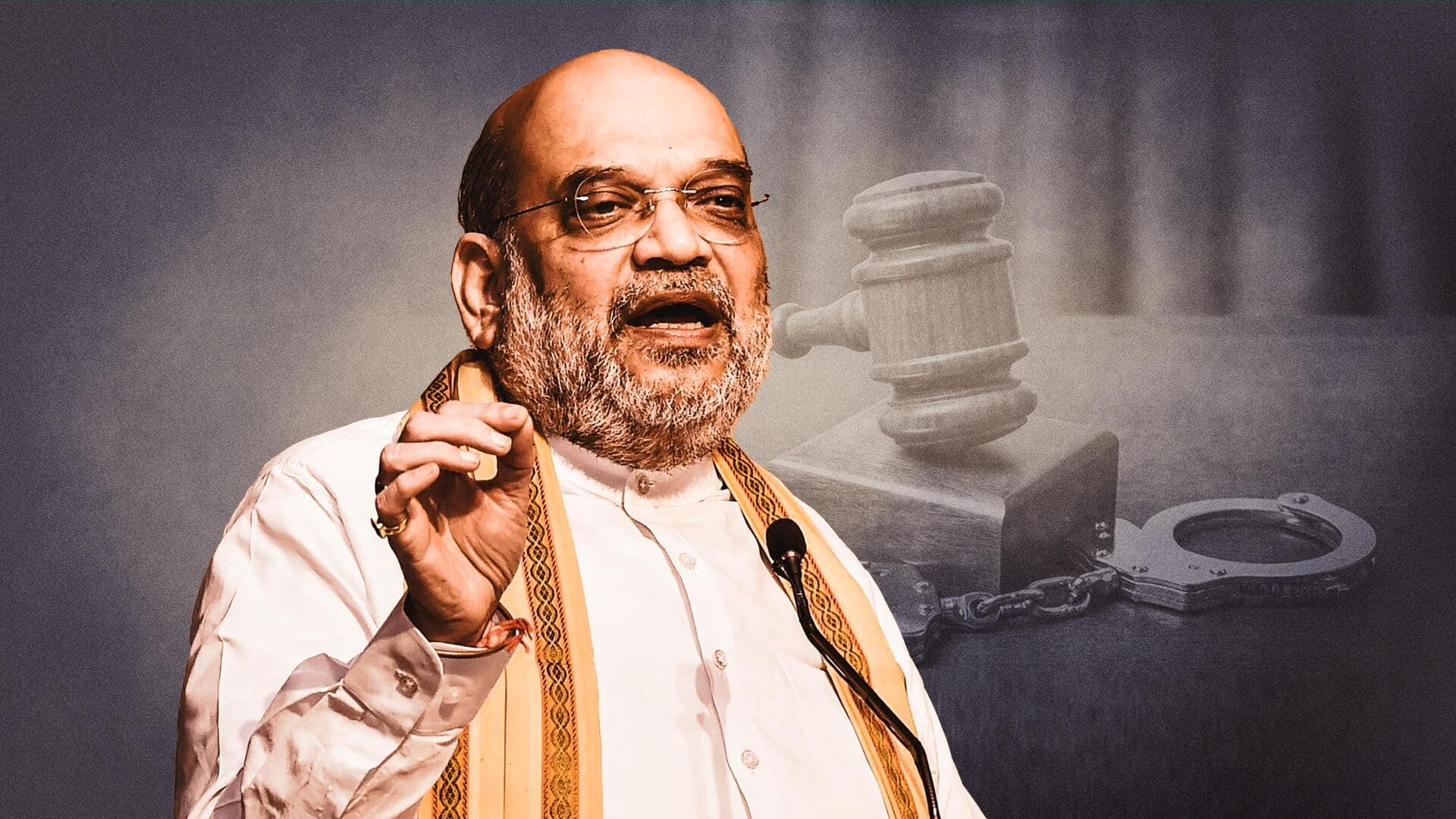
Tech makeover, witness protection key additions in bill replacing CrPC
What's the story
The Centre introduced three bills in the Lok Sabha on Friday to revamp the legal framework of India's criminal justice system. One of the bills is the Bharatiya Nagarik Suraksha Sanhita (BNSS) 2023, aimed at replacing the Criminal Procedure Code (CrPC). The proposed changes include technological overhauls like video conferencing trials to the much-needed witness protection system to protect witnesses in high-profile crimes.
New CrPC
Bill provides for use of technology, forensics through electronic means
The draft BNSS bill allows for the use of technology and forensic sciences in crime investigation, filing of information, sending summons, and other activities via electronic communication, according to Live Law. It seeks to remove nine CrPC provisions, make modifications to 107 provisions, and add nine new sections. The bill contains 533 sections, as compared to the existing CrPC's 484 sections.
Details
Video conferencing to assist trials
The proposed legislation also calls for time-bound investigations, trials, and judgments, as well as the admission of digital or electronic recordings as evidence—with the same legal validity as a document. It reportedly uses a citizen-centric strategy to provide a First Information Report (FIR) and notifies victims about the case. Video conferencing to assist trials has also been proposed in this bill.
Deadline
Deadline set for filing of chargsheet, judgment after hearing
The bill proposed a 90-day deadline for submitting a charge sheet in a case, a 60-day deadline for framing charges, and a 30-day deadline for judgment following the hearing. It also intends to reduce the backlog burdening the district judiciary by permitting summary trials for offenses punished by up to three years' imprisonment and allowing the entire trial to take place virtually.
Information
Jurisdiction of 'Zero FIR' expanded under new bill
Formally providing for "Zero FIR" registration, the bill proposes that people can file this FIR at any police station, regardless of jurisdiction limitations. It said the FIR must be transferred within 15 days to the police station with jurisdiction over the scene of the crime.
Witness protection
Bill also provides for witness protection system
The new bill also provides for a witness protection system, a much-needed measure to protect witnesses in high-profile crimes. "Every state government shall prepare and notify a witness protection scheme for the state to ensure the protection of the witnesses," Section 398 of the new bill stated. Currently, vulnerable witnesses in criminal cases have the protection under a Supreme Court order of December 2018.
Section 107
Section 107 allows attachment of 'proceeds of crime'
Another major addition to the new criminal code is Section 107, which allows investigating police officers to attach as "proceeds of crime" any property of the accused obtained directly/indirectly through criminal activity. Currently, proceeds of crime can be attached only under the Prevention of Money Laundering Act (PMLA), 2002. However, it makes a maiden entry and gets defined in Section 111 of the bill.